Fair Shine industrial (Hong Kong) Co., Limited
To provide customers with the most comprehensive precision mold parts solutions.

Custom Medical Packaging Mold Parts Supplier | |
Product Name | Medical Packaging Mold Parts |
Brand Name | Fair Shine |
Place of Origin | Dongguan, Guangdong, China |
Specification | Customized on Request |
Customization | Material, size, shape, convex and concave marking, coating, laser engraving mark and packing are all customizable. |
Product Material | Carbide.ASP23 Vanadis.CPMRTXM4.SKD11SKD61HSSA2M2D2SUJ2.S45C.ect |
Standard | DIN ANSI BS JIS |
Tolerance | ±0.002mm |
Surface Treatment | TiCNTiN,Aitain,Ticrnnitriding Black oxygened Black coating etc available |
Polishness | Close to Ra0.2 Hardness Depends on material(HRC45~74) |
Hardness | Depends on material(HRC45~74) |
Shaping Mode | Grinding, wire cutting, EDM, cnc machining, cnc turning, cnc Milling |
Application | Machinery Parts and Molds |
Dongguan Huixiang Mold Technology Co., Ltd. has been engaged in manufacturing for 14 years, mainly engaged in hardware product manufacturing, mold manufacturing, and mechanical parts and component processing.
Manufacturing of automobile parts and accessories; manufacturing of general parts; sales of hardware products, mold accessories, mechanical parts, and spare parts; sales of automobile parts and accessories; sales of instruments and meters; sales of plastic products; technical services, technology development, and hardware product research and development.
We have successfully passed the LS09001:2015 quality management system certification, which shows that we can provide the most professional services to internal and external customers and help us become a world-class supply chain service provider. The company will adhere to the service tenet of "sincere cooperation, quality first, credibility first" and sincerely hopes to cooperate with our customers to create a win-win situation.
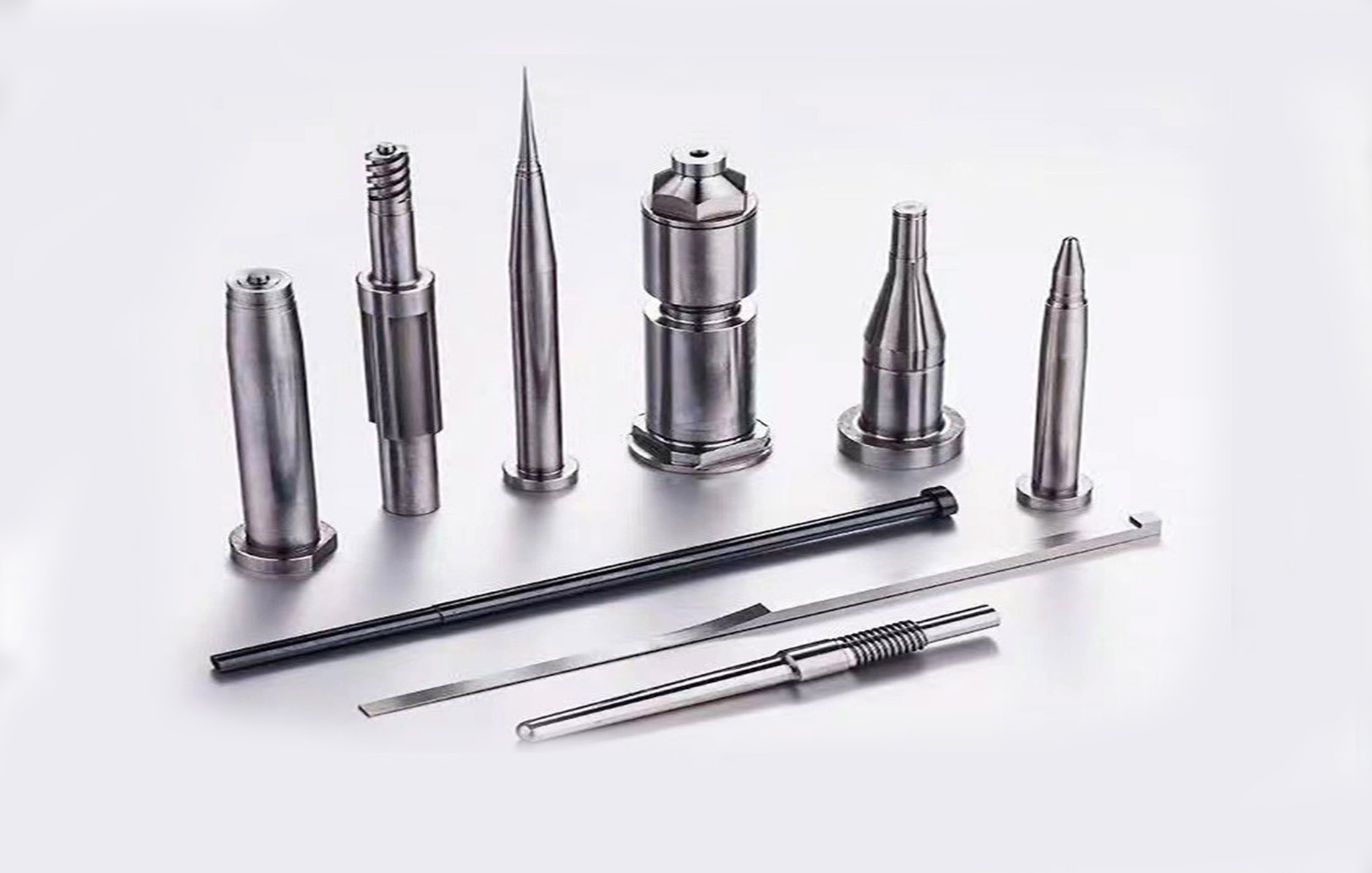
1. Pen making/cosmetics/packaging products: pen model refills/pen cap accessories/pen refill thread inserts/lipstick series/spray molds;
2. Medical packaging equipment products: syringe core/syringe core (combination (pieces)/test tube core/medical packaging bottle cap screw core/drawing cover core and push plate cover; front and rear mold cores such as upper and lower caps of mascara;
3. Optoelectronic/digital electronic products: precision optoelectronic shaft/precision insert Sub/core/busting/precision positioning, etc., the accuracy tolerance is generally controlled within 0.002-0.005, all with test reports for customer inspection;
4. Home appliances, automotive machinery products: self-lubricating wear-resistant blocks (high-strength brass Add graphite)/No oil self-lubricating guide bushing, movable core assembly (inclined top seat)/guide column assistant/positioning column, etc.;
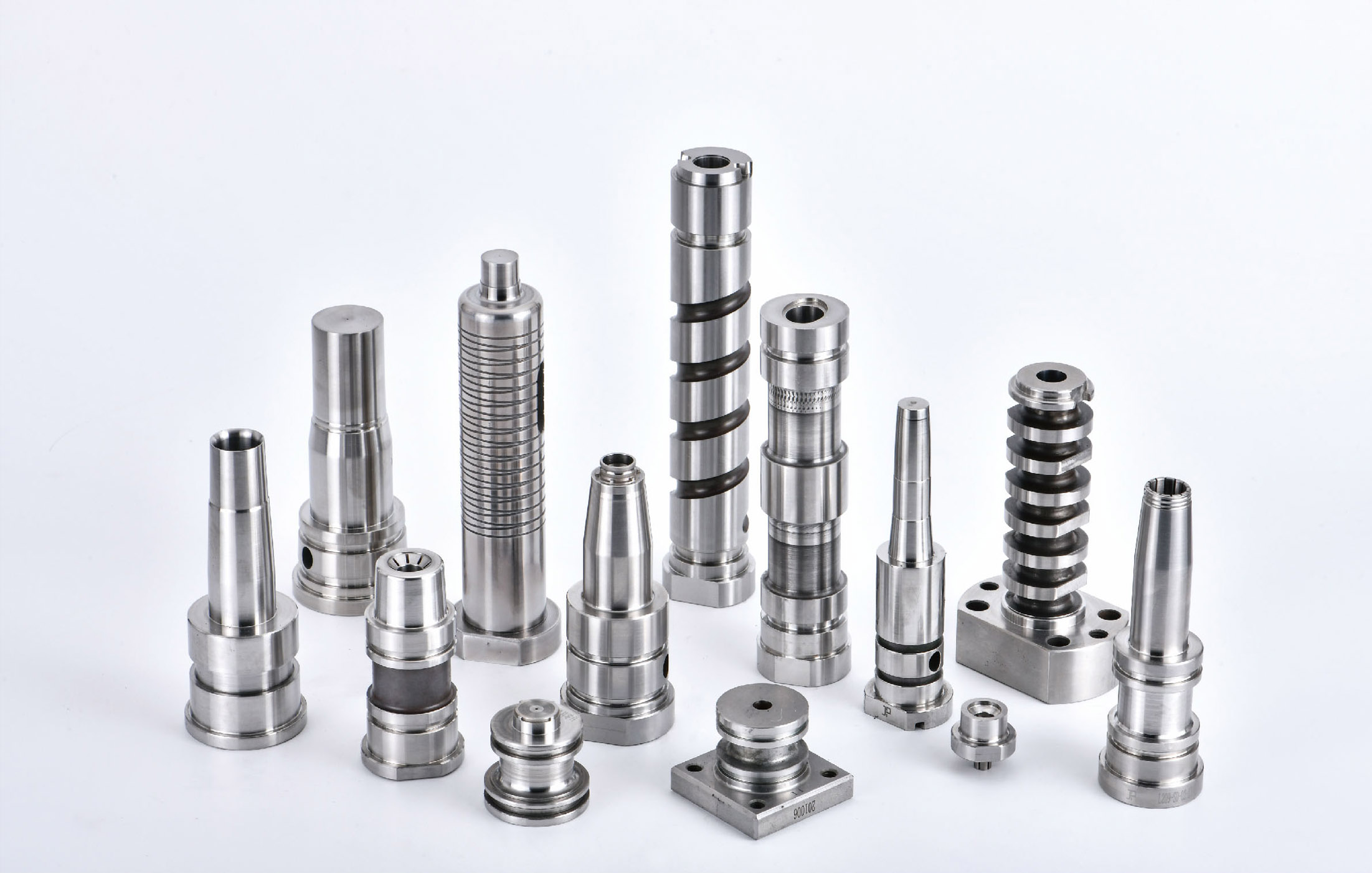
5. Precision stamping mold accessories: non-standard punch needles, punch heads, punch needles, tungsten Steel punch, CNC punch, carbide punch, ASP-23 punch, powder high-speed steel punch, SKH51 punch, SKD11 punch, DC53 punch, double-pin punch, double-pin special-shaped punch, Customized guide punches, guide pins, turning punches, forming punches, elliptical punches, square punches, hexagonal punches, special-shaped punches, etc.;
6. Bushings, die inserts, lower molds, CNC Customized standard and non-standard precision stamping mold accessories such as concave molds, special-shaped bushings, contour sleeves, floating pins, cross pin floating pins, guide lifting pins, tungsten steel punches, etc.;
7. Guide pins, positioning pins, stoppers Standard and non-standard customization of high columns, limit columns, etc.;
8. Non-standard customization of SKH51 thimbles, SKD61 thimbles, supporting pins, flat thimbles, shooting pins, cylinder pins, push tubes, imported material thimbles and cylinder cylinders;
Frequently Asked Questions in the Manufacturing Process of Precision Molds in Medical Devices
In the medical device industry, the manufacturing of precision molds is crucial, which is directly related to the quality, performance and safety of medical devices. However, in the manufacturing process, a series of problems are often encountered.
1. Dimensional accuracy is difficult to guarantee
Precision molds of medical devices require extremely high dimensional accuracy and often need to reach the micron level. However, in the actual manufacturing process, due to factors such as the accuracy limitation of the processing equipment, tool wear, clamping errors, and thermal expansion and contraction of the material, the size of the mold may be deviated. For example, when making a mold for a micro catheter, a slight deviation in the diameter of the cavity may affect the inner diameter of the catheter, thereby affecting its conveying effect in the body.
2. Surface quality defects
The quality of the mold surface directly affects the surface finish and biocompatibility of medical devices. Common surface quality problems include scratches, pitting, rust spots, etc. These defects may result from improper cutting during processing, burns in grinding, inadequate polishing or improper storage environment. For example, scratches on the surface of surgical instrument molds may breed bacteria, affecting surgical effectiveness and patient safety.
3. Problems of selection and treatment of mold materials
Medical device molds have very strict requirements on materials, not only high strength, high hardness and wear resistance, but also biocompatibility and corrosion resistance. However, when selecting materials, inappropriate materials may be selected due to insufficient understanding of material properties or cost considerations. At the same time, improper heat treatment process of the material, such as inaccurate quenching temperature and time control, may lead to uneven internal structure of the material, affecting the service life and performance of the mold.
4. Difficulty in processing complex structures
Many medical device molds have complex structures such as tiny runners, thin-walled structures and special shapes. The machining of these complex structures requires high-precision CNC machine tools and rich processing experience. Otherwise, problems such as inadequate processing, deformation or breaking of the knife are likely to occur. For example, when manufacturing a pacemaker mold, it is difficult to process the complex electronic component installation groove inside it.
5. Mold assembly error
The assembly accuracy of the mold has an important influence on its performance. During the assembly process, if the matching tolerances of the parts are unreasonable, the assembly order is incorrect, or the assembly tool is improper, it may lead to problems such as poor movement of the mold, lax sealing or misalignment. For example, the assembly error between the push rod and cylinder of the syringe mold will affect the injection accuracy and sealing performance of the syringe.
6. Mold test and debugging problems
Even if the mold is manufactured, problems such as dissatisfaction in filling, flashing, and difficulty in demoulding may occur during the mold test stage. This requires repeated debugging of the process parameters of the mold, such as injection molding pressure, temperature, speed, etc., which increases the manufacturing cycle and cost.
7. Cost control and quality balance
In order to ensure the high quality of medical device molds, advanced processing equipment, high-quality materials and strict testing methods are often required, which leads to higher costs. How to effectively control costs while ensuring quality is a problem faced by manufacturing companies. In short, the manufacturing of precision molds for medical devices is a challenging process, which requires manufacturing companies to continuously improve their technical level, strengthen quality control, optimize processes and management processes to solve these common problems and produce high-quality molds that meet the requirements.
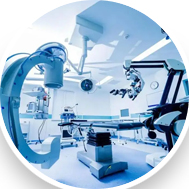

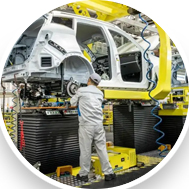
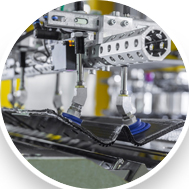
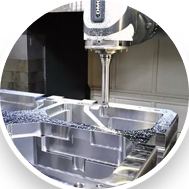

A comprehensive answer to the frequent appearance of black spots in molds
In mold production, the black spot problem is a relatively common and troublesome phenomenon. The emergence of black spots not only affects the appearance quality of the product, but may also have adverse effects on the performance and service life of the product. Below we will discuss in-depth the reasons why black spots often appear in molds and the corresponding solutions.
1. The reasons for the occurrence of black spots
Raw material pollution: impurities, dust or other foreign matter are mixed into the plastic raw materials. The recycled material is of poor quality and contains uncleaned contaminants. For example, during the production process, if the plastic particles used are mixed with fine metal particles or fibers, black spots will easily form under high temperature and high pressure.
Mold wear: After the mold is used for a long time, wear and scratches appear on the surface of the cavity. The exhaust of the mold is not smooth, resulting in excessive local pressure and accelerates mold wear. For example, due to frequent friction in the thimble part of the mold, it is easy to have wear marks, resulting in black spots.
Processing temperature is too high: During injection molding or die casting, the temperature is set too high, causing the plastic or metal to decompose. The heating system is out of control, causing the local temperature to exceed the normal range. Taking injection molding as an example, if the barrel temperature is too high, the plastic will thermally degrade, resulting in black decomposition.
Improper use of mold release agent: The mold release agent is not selected appropriately and reacts with the raw material. The amount of mold release agent is used too much and remains on the surface of the mold. If the release agent used is incompatible with the plastic, black stains may form on the surface of the mold.
The mold is not cleaned properly: After the production is completed, the residual materials in the mold are not cleaned in time. The cleaning method is incorrect and the dirt cannot be completely removed. For example, when cleaning the mold, you only use a simple wipe without deep chemical cleaning, making it easy to leave stains.
2. Methods to solve the black spot problem
Strictly control the quality of raw materials: choose high-quality raw materials and avoid using plastic particles or metal materials containing impurities. Strengthen the screening and treatment of recycled materials to ensure that they are clean and pollution-free. When purchasing raw materials, you should choose a reputable supplier and conduct strict incoming materials inspection.
Regularly maintain molds: inspect and maintain the molds according to the prescribed cycles and repair the worn parts in a timely manner. Optimize the exhaust system of the mold to reduce local pressure. Regular mold maintenance can effectively extend the service life of the mold and reduce the occurrence of black spots.
Reasonably set the processing temperature: accurately set the injection molding or die-casting temperature according to the characteristics and process requirements of the raw materials. Install a temperature monitoring device to ensure temperature stability. Through continuous testing and optimization, we find the most suitable processing temperature parameters.
Correct use of mold release agent: Select a mold release agent with good compatibility with the raw materials and control the dosage according to the instructions. After using the release agent, ensure that the mold surface is dry and clean. The suitability of the mold release agent can be determined through a small-scale trial.
Strengthen mold cleaning: After the production is completed, use effective cleaning methods to clean the mold immediately. Use professional mold cleaning agents and combined with ultrasonic cleaning and other technologies to ensure that the mold is thoroughly cleaned. Develop detailed mold cleaning operating procedures and train operators.
3. Measures to prevent black spot problems
Establish a complete quality control system
Strictly manage the procurement, inspection, storage and other links of raw materials.
Optimize the production environment
* Keep the production workshop clean and dry, and reduce the inclusion of dust and foreign matter.
*Control the temperature and humidity of the production environment to avoid adverse effects on raw materials and molds.
Strengthen personnel training
* Improve operators' awareness and attention to black spot issues.
*Train operators to correct mold operation, maintenance and cleaning methods.
Regular inspection of molds
*Use advanced testing equipment to regularly inspect molds to discover potential problems in a timely manner.
*Store consumable parts
*Storing the consumable parts of the mold in advance so that they can be replaced in time when wear occurs.
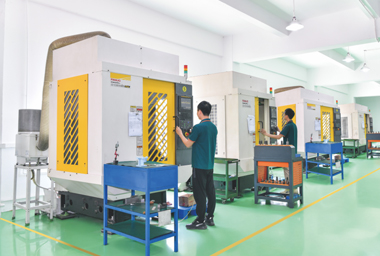
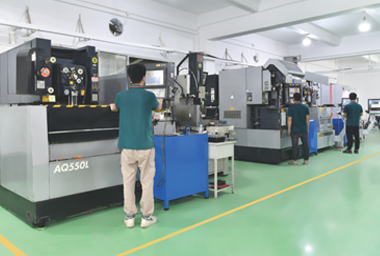
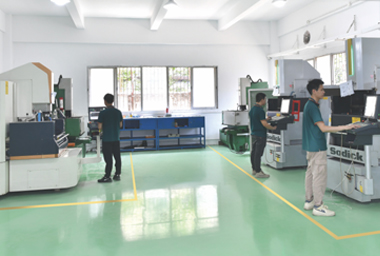
The key role of precision molds in the medical device industry
In the development process of the medical device industry, precision molds play an important and key role, providing strong support for the advancement of medical technology and the improvement of medical services.
1. Ensure the high accuracy and stability of medical devices
Medical devices often require extremely high accuracy and stability to ensure the accuracy and reliability of diagnosis and treatment. Precision molds can produce parts with small tolerances and complex structures, such as fine cutters in minimally invasive surgical instruments, micro electronic component housings in pacemakers, etc. These high-precision components can ensure the precise operation and stable performance of medical devices during use, and provide protection for patients' lives and health.
Taking the blood glucose meter as an example, its internal sensors and detection chips need to achieve accurate blood glucose detection through tiny structures made by precision molds. The accuracy of the mold directly affects the accuracy of the test results, thus having an important impact on the patient's disease management and treatment plan.
2. Meet strict hygiene and safety standards for medical devices
Medical devices that directly contact the human body must comply with strict hygiene and safety standards. Precision molds can create parts with smooth surfaces, flawless, easy to clean and disinfect. At the same time, it can ensure uniform distribution of materials and no pores, avoiding bacterial growth and potential infection risks.
In the production of infusion devices, the surface of the needle and catheter made by precision molds is extremely smooth, reducing irritation and damage to blood vessels, while reducing the possibility of infection.
3. Support the innovative research and development of medical devices
With the continuous advancement of medical technology, new medical devices continue to emerge. Precision molds provide the possibility of realization of innovative designs, enabling rapid production of prototype samples, helping R&D personnel verify design concepts and optimize product structure.
For example, in the research and development of new interventional therapy devices, unique shape and functional requirements need to be achieved by precision molds. The flexibility and customizability of molds accelerates the development of innovative products and brings more advanced and more effective treatment options to patients.
4. Achieve the consistency of mass production of medical devices
In the mass production of medical devices, maintaining consistency is crucial. Precision molds can ensure that every produced component has the same quality and performance, thus meeting the market's strict requirements for the quality and reliability of medical devices.
For example, the production of disposable syringes depends on the stable performance of precision molds, ensuring the consistency of capacity, sealing and operating feel of each syringe.
5. Reduce production costs and improve production efficiency
Although the initial investment of precision molds is high, the cost of unit products can be reduced in the long-term production process through its efficient production capacity and long life. At the same time, the scrap rate and subsequent processing processes are reduced, and the overall production efficiency is improved.
To sum up, precision molds play an indispensable role in the medical device industry. It not only ensures the high accuracy, stability, safety and innovation of medical devices, but also provides strong technical support and guarantee for the development of the industry. With the continuous development of medical technology, the importance of precision molds will become increasingly prominent, pushing the medical device industry to move towards higher quality and more advanced directions.
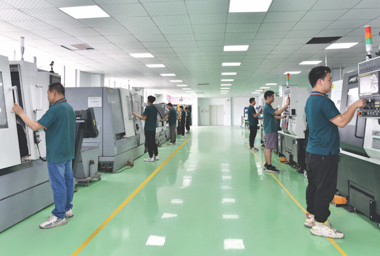
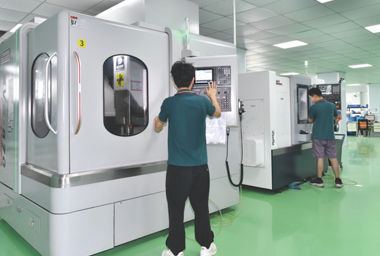
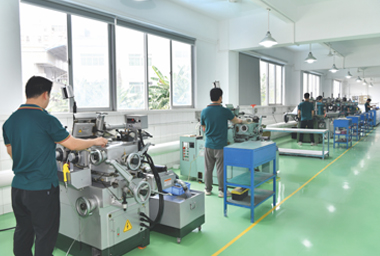
The close connection between medical devices and precision molds
In the field of modern medical care, the continuous innovation and development of medical devices plays a crucial role in improving medical level and improving the treatment effect of patients. And behind this, precision molds play an indispensable role.
1. Precision molds provide a foundation for precise manufacturing for medical devices
Medical devices often require extremely high accuracy and reliability to ensure their accuracy and safety in diagnosis, treatment and other processes. With its exquisite craftsmanship and strict tolerance control, precision molds can produce parts with complex geometric shapes and high precision dimensions. For example, in minimally invasive surgical instruments, fine cutters and probe components need to be accurately formed through precision molds, thereby ensuring the accuracy and minimum traumaticity of the surgery.
Take the pacemaker as an example, the manufacturing of the micro electronic components and connectors within it rely on highly precise molds. The accuracy of the mold directly determines the performance and stability of these components, thus affecting the normal operation of the pacemaker in the patient's body.
2. Precision molds help the innovative design of medical devices
With the continuous advancement of medical technology, the design of medical devices has become increasingly complex and diversified. Precision molds can quickly create prototype samples based on designers’ innovative ideas, helping to verify the feasibility of the design and optimize product structure.
For example, in the research and development of new medical testing equipment, the unique sensor shape and structure need to be realized through customized precision molds. The flexibility and customizability of the mold provide strong support for the innovative design of medical devices, accelerating the launch of new products.
3. Precision molds ensure mass production of medical devices
In the mass production of medical devices, maintaining consistency is crucial. Precision molds can ensure that every produced component has the same quality and performance, thereby reducing defective rates and improving production efficiency.
For example, the production of disposable syringes requires a large number of plastic parts of the same specifications, and precision molds can stably produce parts that meet the standards, meeting the huge market demand.
4. Precision molds promote the development trend of the medical device industry
As people's attention to medical and health continues to increase, the medical device industry is developing towards intelligence, miniaturization and personalization. Precision mold technology is also constantly innovating and upgrading to adapt to these development trends.
In intelligent medical devices, such as remote monitoring equipment and smart rehabilitation equipment, the manufacturing of internal precision sensors and electronic modules is inseparable from advanced precision mold technology.
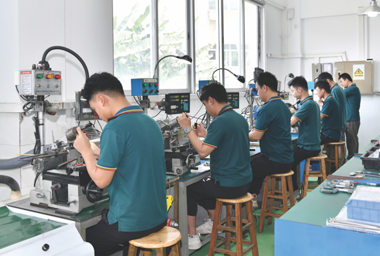
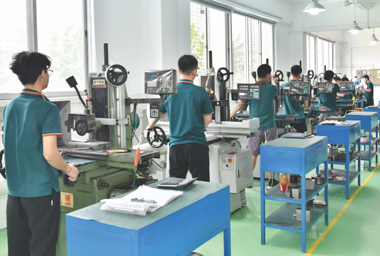
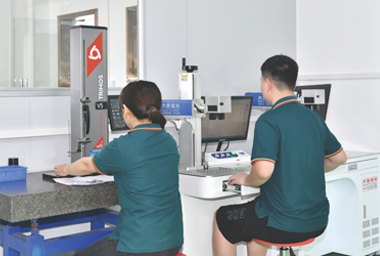
Our Services
1. Specialized in precision mold part ,inquiries will get highly attention and be prompt response.(within 24 hours).
2. Advanced facilities and experienced engineers, rich experience in mold parts.
3. Guaranteed quality, superior material quality compared to all other.
4. Customer oriented, efficient solution to control the cost for our client.
5. One-stop service, any questions can be solved at the first time by us.
6. Each part has been got 100% inspection before shipment.
Our adavanges
1. Clean and tidy workshop.
2.Strick and serious manangement, skilled and expericenced technicians.
3. Various raw material(imported and Chinese) to meet different needs of customers.
4.Equipment of high pricision.( Surface grinding,Sodick Wire-cutting.drilling machine).
5.The QC go along with all the production processes in our factory.
6. You can use English or Japanese for cummunication
Payment Terms
T/T,Paypal,Western Union,50% deposit, balance before shipment is available
Package:PE bag with anticorrosive oil,foaming film with carton,or wooden box according to customer's requirement.
Delivery:Delivery time is usually 7-15 working days for type of ejector pin,specific time is according to quantity.
Shipping:We ship using express such as DHL, UPS, FEDEX etc. or according
to customer's requirement . It takes about 3-5 days to arrive your front
door, and proof of shippments are provided with a shipping or tracking
number. And we ship by occean shippment for larger quantity items,
it will be economic for customers.

Fair Shine industrial (Hong Kong) Co., Limited
To provide customers with the most comprehensive precision mold parts solutions.
+86 189 2682 6341
Block 1, No. 12, Wusong 4th Street, Yuwu Industrial Zone, Dongcheng District, Dongguan, Guangdong, China
Copyright © 2025 Dongguan Huixiang Mold Technology Co., Ltd all rights reservrd.
Technical support: HuaShang